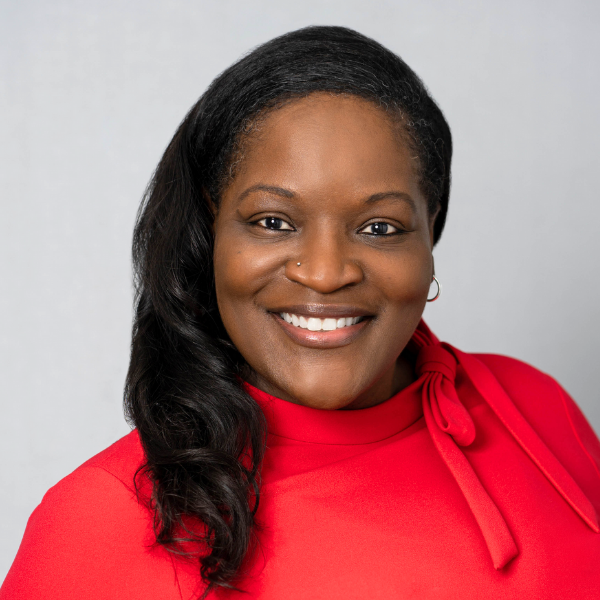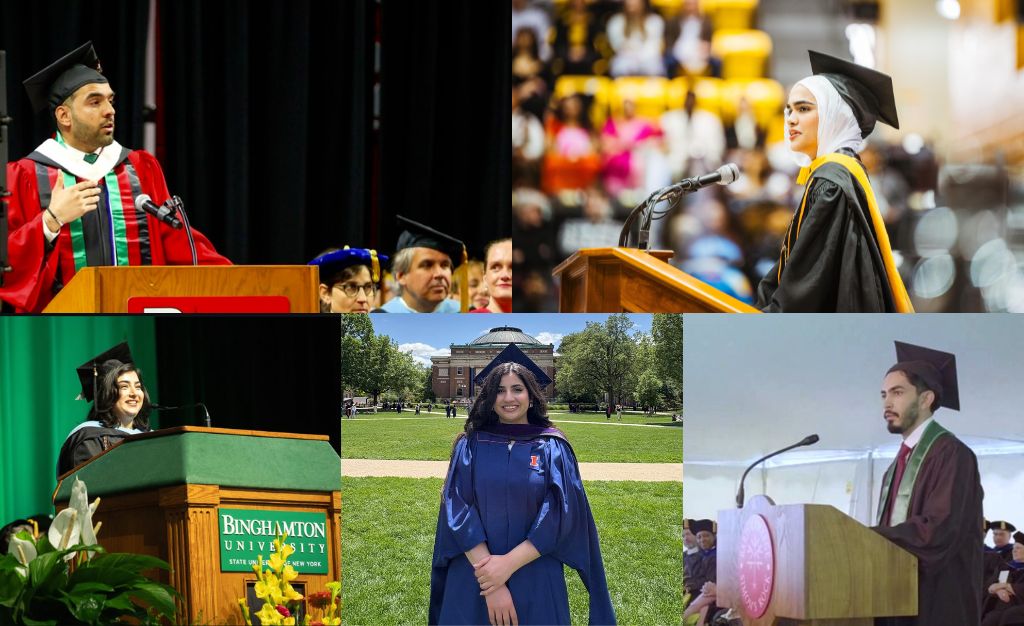
“A Second Chance At Building The Future”
Once Facing Uncertainty in Afghanistan, QSAP Scholars Deliver Remarks About Resilience and Community This Spring
Photographed above, starting top left clockwise: Mohammad Yosuf Ayni, Tabasum Hamdard, Sayed Eqbal Srosh, Diyana Sharifi, and Shahdukht Tapesh were selected as student speakers.
IIE is proud to celebrate the Qatar Scholarship for Afghans Project (QSAP) Class of 2025. Ninety-eight QSAP scholars graduated from their universities this year, the largest graduate cohort since the program began in 2022. Recognized for inspiring stories of resilience and positive contributions to campus life, five QSAP scholars—Mohammad Yosuf Ayni, Tabasum Hamdard, Diyana Sharifi, Sayed Eqbal Srosh, and Shahdukht Tapesh—were selected as student speakers at their graduation ceremonies this spring. To celebrate the entire QSAP Class of 2025, IIE hosted a virtual commencement ceremony in June. Speakers included Jason Czyz, President of IIE; Talal Al-Hothal, Director at Education Above All (EAA); Wilson Shirley, Afghan Future Fund (AFF) Board Member; Tim Barnes, Executive Director of Partnerships & Research at the University of Kentucky; Sakhi Ataye, Bard College ’25; and Jonah Kokodyniak, EVP at IIE.
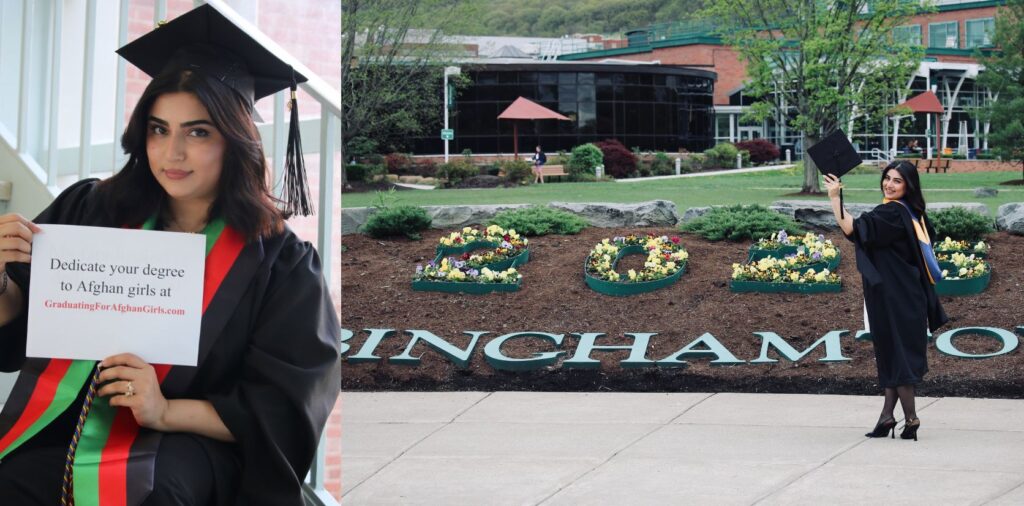
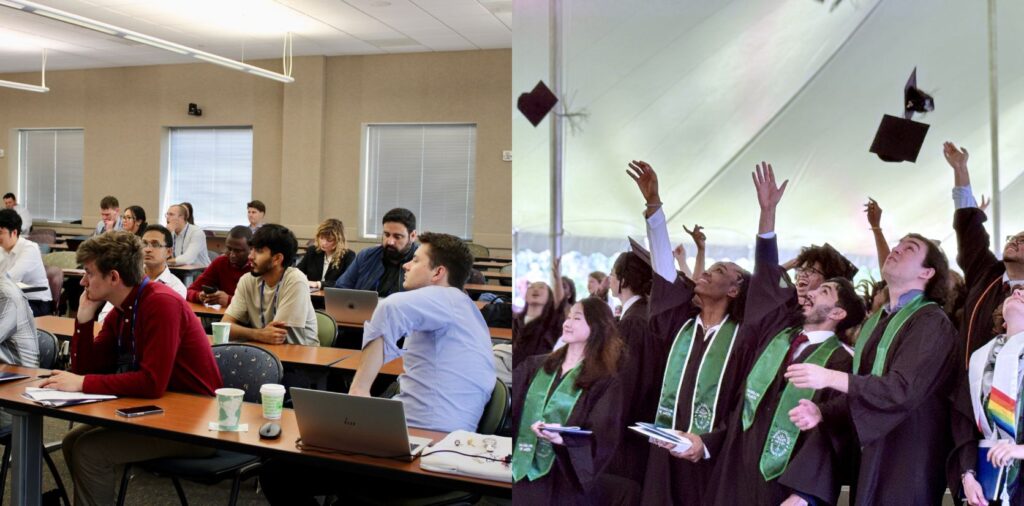
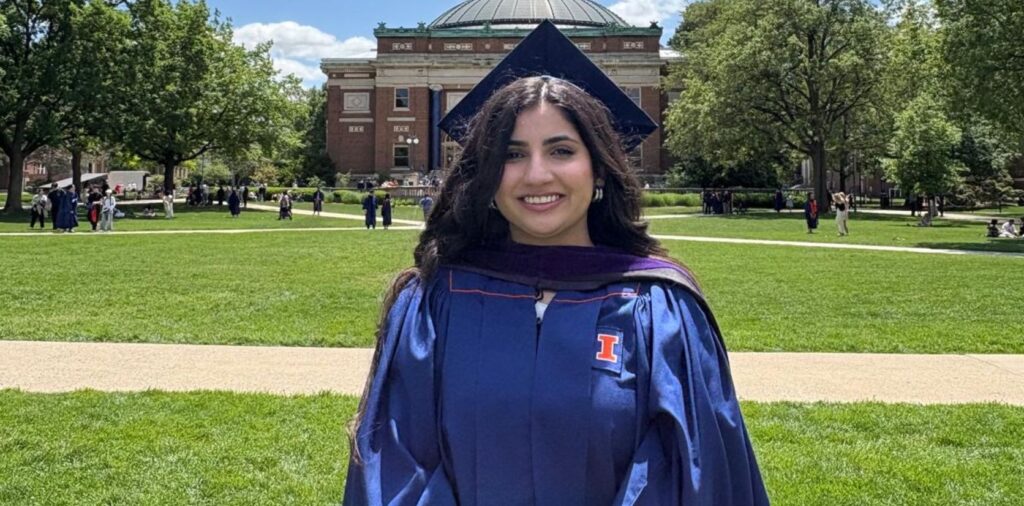
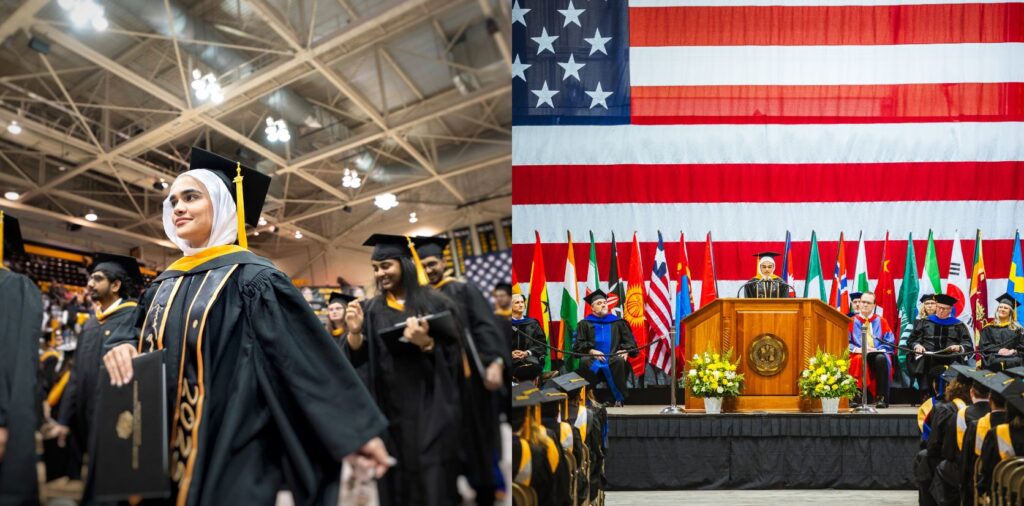
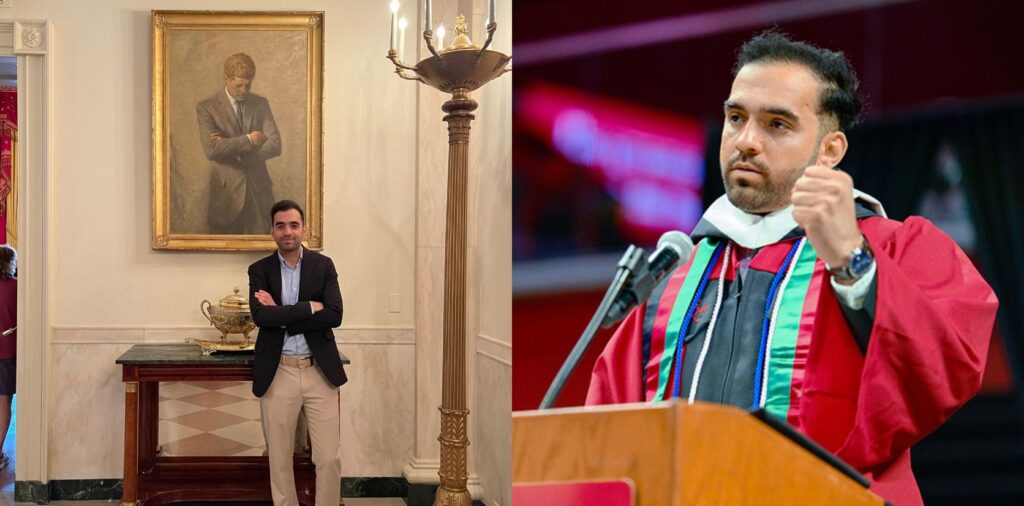
Created to preserve and invest in human capital among displaced Afghan university students, the QSAP program is supported through a collaboration among the Afghan Future Fund (AFF), Education Above All, the Yalda Hakim Foundation, the Institute of International Education (IIE), and the Qatar Fund for Development (QFFD). Scholars receive funds to continue their academic studies outside of Afghanistan.
Below, QSAP scholars reflect on their journeys to advance their education and pay it forward, and share excerpts from their remarks at their respective graduation ceremonies at Bard College at Simon’s Rock, Binghamton University, Michigan Technological University, University of Illinois Urbana-Champaign, and Rutgers University. Reflections have been edited for brevity and clarity.
Mohammad Yosuf Ayni, B.A. in Political Science & International Relations, Rutgers University
Leaving Afghanistan taught me that resilience is transforming pain into purpose—it is having the courage to rebuild your life and to still choose hope. When I learned that I had been selected as a QSAP Scholar, I felt a powerful mix of relief, hope, and validation. After all the uncertainty and loss, I felt seen, not just as a student, but as someone striving to build a new life with purpose.
My education at Rutgers helped me find my voice and understand the power of mentorship, support, and human connection. Being part of QSAP gave me more than academic support; it gave me a community that believed in my potential when I needed it most. I’ve made meaningful connections with other QSAP scholars; we’ve built something meaningful together: a support system grounded in resilience and empathy.
My mission is to create environments where others feel seen, supported, and empowered to thrive. Coming from Afghanistan, I understood early on how deeply governance can impact people’s futures. I chose this path not only to understand systems of power, but to one day enhance them for the benefit of future generations, especially Afghan youth and women, and people who have been displaced around the world.
At Rutgers, I learned that we are not defined by where we come from, but by what we choose to become. I believe our stories can bridge divides, inspire change, and remind others they’re not alone. No matter what challenges you face, your voice has value—and when used with intention, it can move mountains.
Never underestimate the power of your story.”
Mohammad Yosuf Ayni, QSAP Class of 2025
Tabasum Hamdard, M.S. in Data Science, Michigan Technological University
Leaving Afghanistan and putting my MBA on hold wasn’t part of the plan, but I didn’t have time to think about it. I had to act quickly and adapt. When I found out that I had been selected as a QSAP scholar, I was very grateful; the moment felt surreal. The news reminded me that we weren’t alone; someone out there believed in us and was willing to support us. I also felt a strong sense of responsibility. I knew there were thousands of other girls who would have given anything to be in my place. I’ve always felt that I have to make this opportunity count, not only for myself, but also for those who didn’t get the same chance.
Knowing that I can be part of something that actually helps people is what keeps me motivated. Right now, I’m applying what I’ve learned in agriculture and disease modeling. In addition, I organize and host annual WiDS (Women in Data Science) online events to build visibility, confidence, and connection as well as show young women that someone like them made it in the field so they can, too.
There’s comfort in community. Seeing all of us show up again during the online QSAP graduation reminded me that we’re still part of something shared, even if our paths have gone in different directions. Being part of this group makes me feel proud and hopeful for the future of Afghanistan.
My experiences have taught me that letting go of one path doesn’t mean you’re lost; sometimes it’s the only way to make room for something better.”
Tabasum Hamdard, QSAP Class of 2025
Diyana Sharifi, LLM in Corporate Law, Commercial Law, and Trade, University of Illinois Urbana-Champaign
When I left behind my home to pursue my dreams, I finally understood what resilience truly means. It’s about choosing not to give up on yourself, even when the world around you is falling apart. Chasing your dreams often means walking a difficult, uncertain path, but it’s the persistence through those hard moments that shapes who you become.
When I learned I had been selected as a QSAP scholar, I felt a deep sense of happiness and relief. It made me feel seen and supported, and it reminded me that my goals were within reach.
Being a law student at the University of Illinois pushed me out of my comfort zone. I had to quickly adapt to thinking critically, speaking up with confidence, and understanding complex legal reasoning in a new legal culture. I grew more confident in my voice as a legal thinker and future attorney.
Let’s not forget that we are not just graduates. We are advocates. We have learned how to stand up for justice, for fairness, and for those whose voices are not heard. So, wherever we go next—whether it’s a law firm, a nonprofit, or a courtroom—let’s use our knowledge to make a difference. Let’s keep pushing for a world where no one is left behind.”
Diyana Sharifi, QSAP Class of 2025
Sayed Eqbal Srosh, B.A. in Computer Science, Bard College at Simon’s Rock
QSAP wasn’t just a scholarship; it was a second chance at building the future. I’ll never forget the overwhelming relief and excitement I felt as I boarded the plane, knowing that a new chapter was about to begin.
When I arrived at Bard College at Simon’s Rock, I gained a sense of belonging and purpose. I found mentors who genuinely cared, lifelong friends, and a campus where I felt seen and heard. I came to know several QSAP scholars at Bard and across the U.S. Many of us shared parallel experiences: displacement and starting over while pursuing an education. This commonality fostered a meaningful and uplifting support system that offered encouragement, reassurance, and genuine understanding. That spirit of mutual care and shared resilience.
AI can be a powerful tool for expanding access to information in low-resource languages. I see my education as a starting point for service and innovation. I want to build intelligent systems that are both inclusive and secure—tools that support local languages, respect cultural contexts, and protect data integrity. For my thesis, I focused on machine learning and deep learning techniques for analyzing the sentiment of news in Dari, one of Afghanistan’s national languages. Like many low-resource languages, Dari lacks robust AI models or datasets. Automatic translation or sentiment analysis systems can help policymakers, journalists, and NGOs understand public opinion and/or respond to crises in real time. In a country like Afghanistan, this could enable better humanitarian responses or improve access to education and health information.
Throughout my journey, I have learned to value purpose over perfection. Pursuing my aspirations has never been a straight path, but every step has been meaningful.”
Sayed Eqbal Srosh, QSAP Class of 2025
Shahdukht Tapesh, M.S. in Human Rights, Binghamton University
I felt incredibly fortunate to be selected as a QSAP scholar, but that joy was bittersweet, knowing that Afghan girls are now deprived of similar opportunities. Even though I’m far from home, I still carry the hope of one day returning to help rebuild something better. When I delivered my commencement speech, I dedicated my master’s in human rights to all the Afghan girls who have been denied both the right to education and the joy of graduation for the past four years.
As a student, one of the most valuable lessons I learned was how expanding my network could open doors and shape my career path. I was able to reflect deeply and become more self-aware and intentional about my goals. I identified the skills I needed to succeed in the job market and actively used campus resources to develop those skills, graduating equipped and ready to enter the professional world with confidence.
I’m especially committed to addressing the education ban on women and girls in Afghanistan. As someone who has experienced the power of education, I feel a deep responsibility to support those who have been denied that right. I plan to continue developing initiatives like GraduatingForAfghanGirls.com and collaborate with global partners to expand scholarships, create digital learning pathways, and advocate for the restoration of educational access in Afghanistan.
Education is more than a degree—it’s a duty to advocate for those whose voices are silenced.”
Shahdukht Tapesh, QSAP Class of 2025
Supported by the Afghan Future Fund (AFF), Education Above All Foundation (EAA), Qatar Fund For Development (QFFD), and Yalda Hakim Foundation (YHF), the Qatar Scholarship for Afghans Project (QSAP) works to restore educational access for Afghan youth. Since 2021, QSAP has helped approximately 275 displaced Afghan students continue their education at universities in multiple countries.
Academic Leaders Reflect on the Mutual Benefits of Welcoming Threatened Scholars
More scholars than ever before are facing repression, targeting, and violence worldwide; last year, the IIE Scholar Rescue Fund (IIE-SRF) received the second-largest number of applications in its history, surpassed only by 2023. From Sudan and Ukraine to Cameroon and the Gaza Strip, academics are in need of emergency support amidst new, intensifying, and protracted conflicts and crises in their home countries. The global education crisis is growing and urgent—that is why IIE-SRF is activating its global network of more than 500 host institutions to help provide a safe haven where threatened and displaced scholars can continue their work freely and safely.
In this three-minute video, Nishi Dhupa (Associate Vice Provost for International Affairs, Cornell University), Ahmad Dallal (President, American University in Cairo), and Martin Paulsen (Head, Department of Foreign Languages, University of Bergen) describe why their institutions have chosen to host IIE-SRF fellows, including the mutual benefits and impact these scholars have had on their campuses. The video also features Dr. Sharif Hozoori, an IIE-SRF fellow from Afghanistan at Cornell University.
[Caption] Learn more about hosting an IIE-SRF fellow.
IIE-SRF utilizes a highly individualized process to arrange an appropriate position for each fellow to ensure the best possible fit for both the scholar and the host institution, including placing scholars at hosts within their home region when appropriate. By establishing connections with a broad range of host institutions from different world regions, IIE-SRF is able to place fellows at institutions that best fit their academic expertise, linguistic skills, and cultural backgrounds. Regional placements, which in recent years have made up approximately a third of all fellowship appointments, have enabled fellows to better preserve connections with their academic networks and continue contributing to their home academies.
While on their fellowships, scholars contribute to ongoing research or begin original research, complete pending publications, teach or co-teach classes, deliver guest lectures, and/or serve as an on-campus resource to both students and faculty. Host institutions benefit from the opportunity to learn from the scholars’ unique expertise and perspective while also addressing the critical issues facing threatened and displaced scholars and higher education globally. For example, a fellow from Afghanistan helped his host institution revitalize its dormant wheat breeding program; a fellow from Turkey used his passion for teaching to develop new curriculum and inspire students; and a fellow from Ukraine helped her host institution establish a new informatics program.
IIE-SRF is the only global program that arranges, funds, and supports fellowships for threatened and displaced scholars at partnering higher education institutions worldwide, including inside their home regions. Since 2002, IIE-SRF has supported 1,166 scholars from 62 countries in partnership with 522 host institutions in 59 countries. Learn more about hosting an IIE-SRF fellow.
When the United Nations General Assembly established World Youth Skills Day in 2015, the goal was clear: to spotlight the importance of equipping young people with the skills needed to secure employment, access decent work, and foster entrepreneurship.
A decade later, the world has changed in ways few could have predicted. The rise of artificial intelligence (AI) and rapid digitalization have transformed the global workforce, rendering many traditional skillsets obsolete. It’s estimated that AI could displace up to 800 million jobs globally by 2030, with tens of millions already impacted.
That’s why this year’s theme—“Youth Empowerment Through AI and Digital Skills”—feels especially urgent.
The Unequal Digital Landscape
While the global community increasingly acknowledges the impact of AI on youth employment, one reality remains stark: access to the education and tools needed to thrive in this new era is still deeply unequal.
The digital divide today is shaped not just by access to devices and connectivity, but also by disparities in digital literacy, affordability, and infrastructure. These challenges are even more acute for displaced persons or those whose education has been disrupted by war, civil strife, or natural disaster.
Spotlight on Afghanistan
One such place is Afghanistan, where the already fragile education system has been further destabilized since 2021. As of 2021, Afghanistan’s internet penetration stood at just 22%, while according to a 2024 report, only 15% of Afghans had internet access. The digital divide also has a disparate impact on Afghan women, with only 6% of Afghan women reporting internet access in 2022, compared to 25% of men. Likewise, the education of women and girls has been particularly affected: education above the secondary level remains banned for girls, and women face severe restrictions on movement, employment, and access to digital platforms.
Bridging the Gap: The Qatar Scholarship for Afghans Project
Amid these challenges, the Qatar Scholarship for Afghans Project (QSAP) stands out as a beacon of hope. Supported by partners Afghan Future Fund (AFF), Education Above All Foundation (EAA), Qatar Fund For Development (QFFD), and Yalda Hakim Foundation (YHF), QSAP is working to restore educational access for Afghan youth.
Since 2021, QSAP has helped approximately 275 displaced Afghan students continue their education at overseas universities in multiple countries. Remarkably, about half of these students are young women. Many have already gone on to achieve extraordinary things—like the members of the Afghan Girls Robotics Team, a group of young women whose technical skills and resilience have inspired the world.
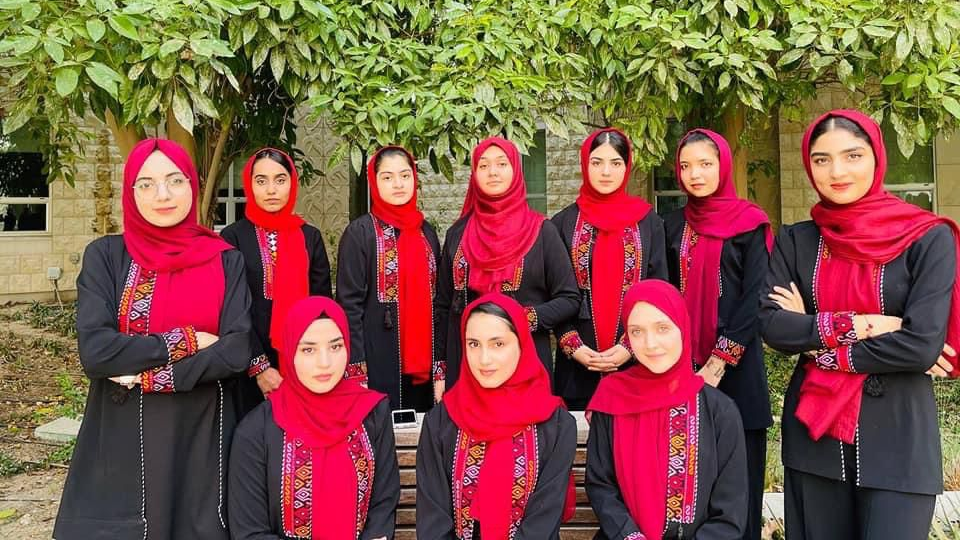
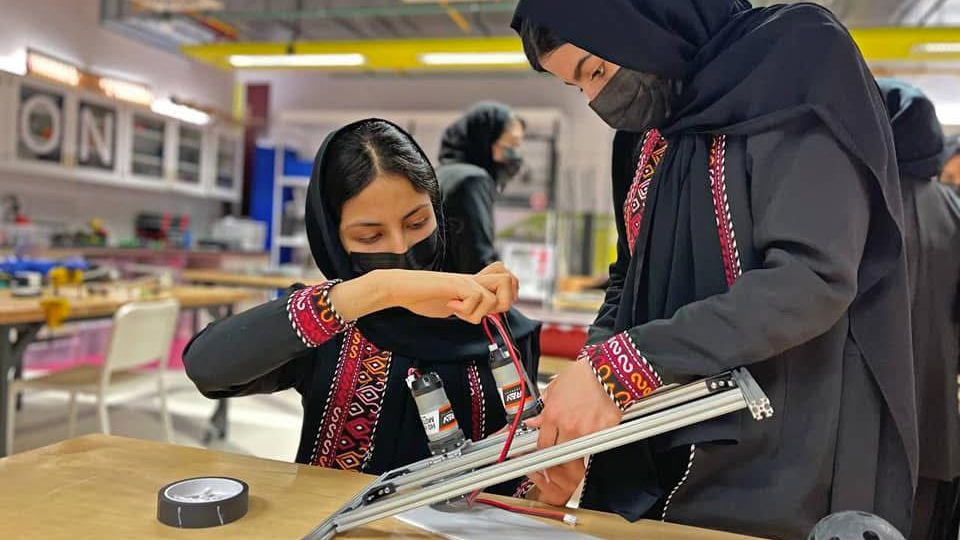
A Call to Action
The needs in Afghanistan—and in many other parts of the world—are great. But on this World Youth Skills Day, we reaffirm our commitment to ensuring that all youth have access to the education and skills they need to compete and lead in a future shaped by AI and digital innovation.
Because when we empower youth, we don’t just prepare them for the future—we give them the tools to shape it.
Study Abroad Among U.S. Engineering Students Has Grown More Than 5x Since Global E3’s Founding
Rapid change, from biotechnologies to infrastructure to aerospace, has placed engineering in demand around the world. But how can educators ensure that engineering students are well-rounded enough to work across and thrive on international and multicultural teams? Thirty years ago, IIE and several engineering schools led the charge by creating the Global E3 Consortium. The purpose: to remove barriers that preclude engineering students from studying abroad, and in turn provide these students with international experience and valuable soft skills necessary to succeed in today’s global professional environment. Today, the consortium has grown to nearly 70 leading engineering colleges and universities worldwide.
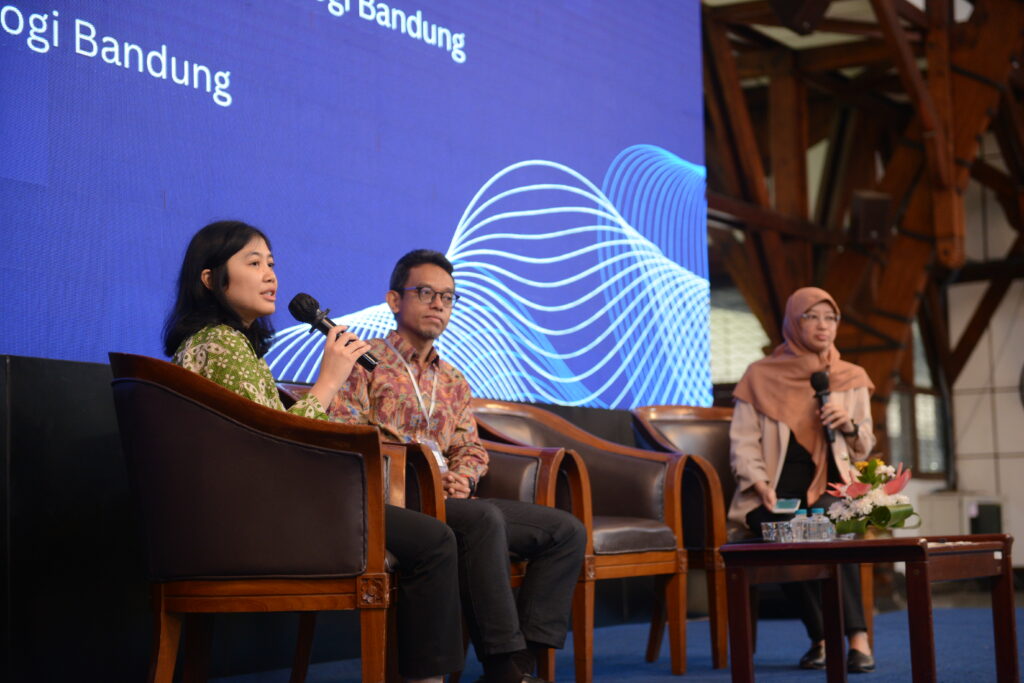
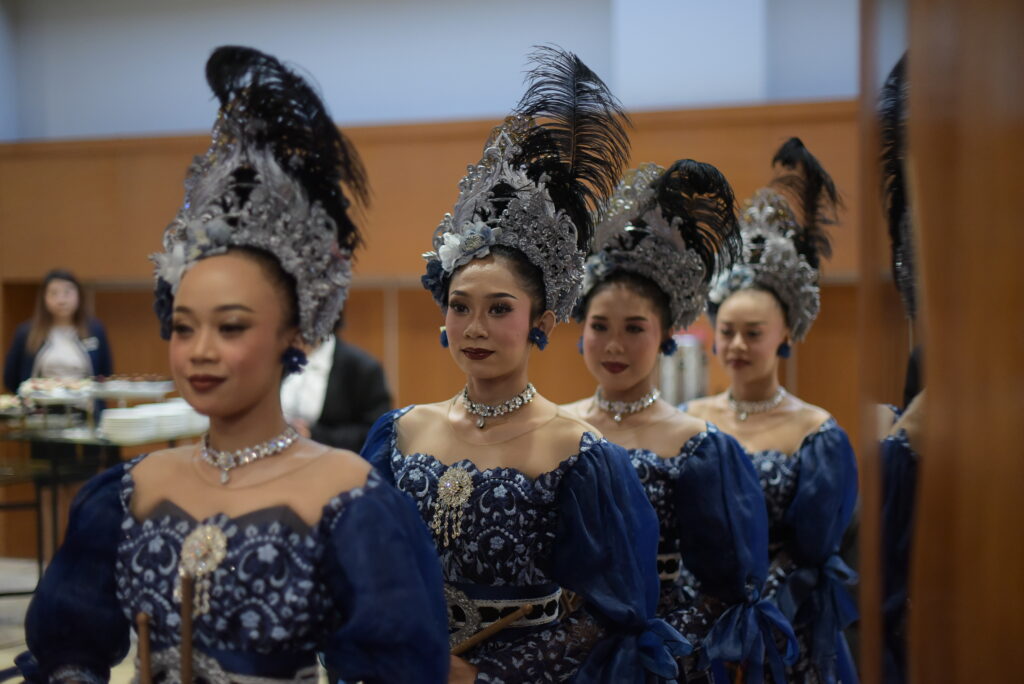
To celebrate three decades—and a more than fivefold increase in U.S. engineering students’ study abroad participation—50 representatives of 35 Global E3 member institutions from 18 countries convened at the Institut Teknologi Bandung (ITB) in Indonesia for the Annual Members Meeting this spring. The event underscored the commitment that each institution has to expanding exchange and support for engineering students. While the consortium’s membership composition has changed over the years, its mission remains the same and more relevant than ever. In addition to the highly specialized technical education that employers seek, employers also consistently value the transversal skills and global perspective needed to thrive on multicultural and international teams—skills such as flexibility and adaptability, intercultural competence, tolerance for ambiguity, and self-awareness.
Global E3’s unique approach directly addresses the needs of both employers and students by creating viable options for the latter to gain valuable global experience without sacrificing their graduation course requirements and timelines. To ensure academic continuity, Global E3 institutions must offer sufficient engineering courses in English to satisfy the student’s home university requirements. Students are also encouraged to take additional courses in the language native to the host country, thus enabling greater understanding of its cultural context and helping them develop soft skills that give them an employment edge.
At the time of Global E3’s founding, Open Doors data® showed that engineering students represented just 2.2% of U.S students studying abroad; in 1995, that was just 1,881 students. Today, that number has risen to more than 10,000 engineering students from the U.S. engaging in study abroad in the academic year 2022/23, thanks in part to the consortium’s exchange programs and advocacy. Engineering has become the sixth most-popular field of study for U.S. students who study abroad and the second most popular field of study for international students choosing to study in the United States.
The Consortium’s reach spans continents with 69 members from countries across the globe, including Argentina, Australia, Belgium, China, Colombia, Denmark, Egypt, Finland, France, Germany, Hong Kong, Indonesia, Israel, Italy, Japan, Malaysia, Mexico, the Netherlands, Singapore, South Korea, Spain, Sweden, Türkiye, the United Arab Emirates, the United Kingdom, and the United States. Through this extensive network, the Consortium exchanges 250 to 300 students per academic year, with IIE administering the application review and placement process.
Global E3 has grown to more than just exchange; due to the caliber of its member institutions, Global E3 has risen to be a thought leader and collection of experts in the field of international engineering education. Its Annual Meetings, such as the one held in Bandung in May, are hosted each year by a different member institution, showcasing the robust knowledge base surrounding engineering education and exchange within this group. Through conference sessions and various publications, the Consortium has become known for its visionary leadership and longstanding success.
As Global E3 reaches its 30th anniversary, we celebrate the impact it has had and the prospect of continuing to expand global engineering education and thank each of its institutional members for their collaboration and commitment.
To learn more about Global E3, please visit the Global E3 webpage or view the 30th anniversary e-book.
US-UK BRIDGE Partnership Advances Research for a Sustainable Future
IIE congratulates the University of Illinois Urbana-Champaign and the University of Birmingham (UK) on receipt of the 2025 Andrew Heiskell Award for Innovation in International Education in the category of Sustainability. Founded in 2014, the Birmingham-Illinois Partnership for Discovery, Engagement & Education (BRIDGE Partnership) initiative has cultivated 115 faculty-to-faculty collaborations, published 100+ academic articles, and joint research projects that have generated $10 million in external grants. Officers from Illinois, an IIENetwork member institution, participated in a Q&A to share details about their award-winning initiative.
What is BRIDGE, and why was it initiated?
The BRIDGE Partnership was initiated to harness the complementary strengths of the University of Illinois Urbana-Champaign (Illinois) and the University of Birmingham (Birmingham) by fostering a collaborative relationship aimed at advancing research, education, and societal impact. To date, more than 330 faculty members from both institutions have established ongoing collaborations spanning all five of Birmingham’s colleges and 13 colleges at Illinois.
At the heart of the partnership is a commitment to addressing critical global issues aligned with international sustainability and global health objectives. This includes joint research projects, academic and professional exchanges, tri-lateral partnerships, and shared research fellows.
By joining forces, both universities have expanded opportunities for students and faculty while enhancing their institutions’ internationalization, research, and educational strategies. Additionally, it opens access to external funding opportunities in both the UK and the USA that might not have been accessible to either institution independently, further amplifying their collaborative efforts.
How is the partnership funded?
The BRIDGE Partnership is sustained by institutional funding that supports seed grants, fellowships, and mobility initiatives. In addition, both universities have staff providing logistical support for student and faculty mobility programs. The international offices at both institutions coordinate program management, governance, and strategic oversight, ensuring the partnership’s success and impact.
A matching fund of $100,000 from each institution is allocated annually to support seed grant projects, enabling faculty to pursue innovative ideas and establish long-term collaborations. Since its inception, this initiative has funded 115 research projects across multiple disciplines and is now in its ninth cycle. Since 2014, a total of $1.1 million has been invested in joint seed funding.
How do you measure success?
Success is measured through Seed Fund research outcomes, participation in joint activities, publications, and sustained collaboration.
The BRIDGE Partnership has demonstrated a strong return on investment, securing $10 million in external funding from numerous prestigious organizations, including the Global Centre for Clean Energy and Equitable Transportation Solutions (CLEETS), the British Academy, the Engineering and Physical Sciences Research Council (EPSRC), and many more.
BRIDGE’s innovative approach has led to new programs such as the Global South Fellowship, Water Research Fellowship, Signature Initiatives, and the Staff Exchange.
Surveys of grant recipients and data on project outcomes provide metrics on the number of ongoing collaborations, publications, and external funding secured. These evaluations confirm the program’s success in:
- Encouraging interdisciplinary research across fields, including humanities, sciences, and engineering.
- Promoting equitable access to research opportunities for underrepresented disciplines.
- Strengthening cross-institutional relationships and fostering internal collaboration within Illinois and Birmingham.
BRIDGE has been in operation for a decade. What are you doing to keep BRIDGE current and/or scale up?
BRIDGE’s framework—rooted in seed grants, fellowships, and faculty mobility—can be adopted by other institutions as a proven model for global collaboration. Sharing best practices and evaluation metrics further enhances its scalability. The expansion of partnerships with institutions in the Global South aligns BRIDGE’s efforts with shared global priorities. For instance, the Sustainability Strand of the BRIDGE Signature Initiative, which addresses climate action and the food-energy-water nexus, illustrates how BRIDGE scales its impact by developing solutions to pressing global issues with Global South partners.
To remain active and current, BRIDGE leverages technology to sustain engagement. Planned initiatives like a virtual hub for the Sustainability Strand and a Global Health Virtual Center will facilitate global partnerships, resource sharing, and workshops. These tools ensure the partnership maintains its relevance and momentum, even across geographic boundaries.
Professional development and capacity building are central to BRIDGE’s mission. Programs like the Five-Year Fellowship and Global South Fellowship equip early-career researchers with the skills needed to address complex challenges. Expanding these fellowships ensures a pipeline of skilled researchers contributing to impactful global solutions.
The IIE Heiskell Awards were created in 2001 to promote and honor outstanding international higher education initiatives conducted by IIENetwork members. By recognizing excellence and innovation, IIE supports IIENetwork members in their endeavors, encourages the expansion and creation of initiatives based on these successful models, and amplifies the important role of international higher education on campuses and communities. Each winning initiative receives $1,000 to contribute to its ongoing success. Learn more about the awards and honorees at iie.org/HeiskellAwards.
Partnership Leverages Micro-Credentials, Exam Prep, and Employment Opportunities
IIE congratulates the Alamo Colleges District (ACD) and TecMilenio University for receiving the 2025 Andrew Heiskell Award for Innovation in International Education in the category of Strategic Partnerships. Their joint International Nursing Pathway initiative formalizes a study and training program to help fill the nursing shortage across the United States. Officers from ACD participated in a Q&A to share details about their award-winning initiative.
Why nursing?
The principal goal of the International Nursing Pathway Program is to alleviate the nursing shortage in the U.S. by preparing internationally trained nurses to meet American legal, licensure, and practice standards. It’s an educational and training program for nurses from nearby Mexico to legally transfer their skills to join the U.S. healthcare workforce. The Alamo Colleges District (ACD), TecMilenio University, and Methodist Healthcare System launched this groundbreaking initiative in 2023.
Participants are equipped with the skills, knowledge, and cultural competencies needed to pass the National Council Licensure Examination (NCLEX) and transition seamlessly into the U.S. healthcare system. It integrates NCLEX preparation, medical terminology, and cultural competency education, ensuring that participants are well-prepared for their roles. Additionally, the collaboration with Methodist Healthcare System provides scholarships and employment pathways, bridging the gap between education and workforce needs. The program serves as a model for international education and workforce development.
How has the program taken a unique approach to responding to the nursing shortage?
First, the integration of digital micro-credentials allows participants to earn verifiable, portable qualifications that showcase their skills and competencies. These credentials are recognized by U.S. employers and facilitate participants’ entry into the workforce.
Second, the program offers a culturally inclusive curriculum that goes beyond technical training. Participants receive instruction in medical English, cultural communication, and U.S. healthcare protocols, ensuring they are fully prepared for the U.S. healthcare system.
Finally, by directly involving a major U.S. employer, Methodist Healthcare System, the program creates a seamless bridge between education and employment. This model prioritizes real-world applicability and ensures that participants are positioned for immediate success upon graduation. Together, these innovations create a unique framework that addresses workforce gaps while promoting global professional mobility and cross-cultural understanding.
How would you describe the impact one year after launch?
The International Nursing Pathway Program has achieved significant impact in its first year. More than 40 nurses enrolled in the inaugural cycle, surpassing initial targets. Among these participants, 14 received scholarships provided by Methodist Healthcare System, enhancing the program’s accessibility. Participants have reported high confidence in their ability to pass the NCLEX exam, reflecting the effectiveness of the curriculum and support provided. The program has also facilitated seamless workforce integration. Methodist Healthcare System is preparing to welcome the first cohort of graduates into their hospitals in Spring 2025, underscoring the program’s success in bridging education and employment.
Program evaluation relies on key metrics such as NCLEX pass rates and job placement statistics, which are primary indicators of success. Feedback from participants and employers is also collected and used to inform continuous improvement. By addressing workforce shortages while empowering participants with new opportunities, the program exemplifies a win-win model for international education and workforce development.
The IIE Heiskell Awards were created in 2001 to promote and honor outstanding international higher education initiatives conducted by IIENetwork members. By recognizing excellence and innovation, IIE supports IIENetwork members in their endeavors, encourages the expansion and creation of initiatives based on these successful models, and amplifies the important role of international higher education on campuses and communities. Each winning initiative receives $1,000 to contribute to its ongoing success. Learn more about the awards and honorees at iie.org/HeiskellAwards.
OU Dance Festival Doubles as an International Educational Exchange Program
IIE congratulates The University of Oklahoma (OU) for receiving a 2025 Andrew Heiskell Award for Innovation in International Education in the category of Student Mobility & Exchange. At OU’s Pigmentos International Dance Festival in Puebla, U.S. and Mexican students and instructors exchange ideas, share their cultures, and bond over their passion for dance and the arts. Officers from OU participated in a Q&A to share details about their award-winning initiative.
Why a dance festival?
The Pigmentos International Dance Festival is an annual artistic platform and student exchange opportunity for U.S. and Mexican student-dancers. This exchange provides dance students from both countries with a unique opportunity to share, interact, and learn from each other about dance and life in their respective countries.
While the United States and Mexico are neighbors and each other’s biggest trade partners, the relationship is complicated, and misperceptions abound. Yet this program—with roughly 140 participants and dozens more from the community who attend the performances each year—creates an international space to recognize the beauty of cultural differences and embrace the universal value of art.
Beyond dance classes and performances, there are also roundtable talks and lectures that discuss the field of dance and art in general and that unapologetically aim to grow unity and mutual understanding among the participants. It is a unique space where academia, art, and culture come together on a literal and figurative global stage.
How does this initiative respond to a gap or need in the field?
Dance majors do not often participate in study abroad, and arts-focused study abroad programs are rare. But what really makes this program unique is its accessibility; we’ve intentionally kept costs low to create greater access among local dance students, regardless of their financial situation.
The participation of local dance universities and studios and the number of different venues in which the activities take place also make the Festival stand out. Additionally, the collaborative and international camaraderie make this something truly special. Participants share that there is a sense of “magic” and of “escape” as they take their classes and then witness the regular evening performances throughout the week of the Festival. It is rare to have so many partners from the U.S. and Mexico who trust in this initiative and put in the hours of effort to make it such a success.
Who are the champions of international education on your campus?
Armando Garcia, the Director of OU Programs in Mexico and Co-Coordinator of Latin American Partnerships, is an international educator with a keen interest and experience in the arts. The early stages of the festival started with Garcia’s conversations with Dr. Michael Bearden and other colleagues from the OU School of Dance and dance communities in the greater Puebla area. Today, the program has almost half a dozen collaborators; festival organizers now include The University of Oklahoma, Tec de Monterrey campus Puebla, Centro de Estudios Universitarios SISTI, Benemérita Universidad Autónoma de Puebla, Universidad de las Américas Puebla, and Universidad de las Artes de Aguascalientes.
Members of the dance and cultural community in Puebla have been instrumental in the organization of the Festival, helping universities to create new partnerships and curating the content of Pigmentos. These members, local dancers and cultural managers, are: Carla Carcamo, Angel Cuevas, and Alejandra Delgadillo.
Additionally, the U.S. Embassy in Mexico City and the U.S.-Mexico Commission for Educational and Cultural Exchange (COMEXUS) have supported this initiative as part of their efforts to promote academic mobility between Mexico and the U.S.
The IIE Heiskell Awards were created in 2001 to promote and honor outstanding international higher education initiatives conducted by IIENetwork members. By recognizing excellence and innovation, IIE supports IIENetwork members in their endeavors, encourages the expansion and creation of initiatives based on these successful models, and amplifies the important role of international higher education on campuses and communities. Each winning initiative receives $1,000 to contribute to its ongoing success. Learn more about the awards and honorees at iie.org/HeiskellAwards.
How a Texas Community College Brings the World to 12,000 Students Each Year
IIE congratulates Lone Star College (LSC) on receiving a 2025 Andrew Heiskell Award for Innovation in International Education in the category of Widening Access to International Education. LSC’s Global EdVantage initiative has grown LSC’s international division from a small office that offered one or two study abroad trips each year, to a comprehensive joint office that delivers international education and training to 12,000 students and faculty throughout the Houston, Texas, area community college system each year. Officers from Lone Star College participated in a Q&A to share details about their award-winning initiative.
Tell us about Lone Star College and the Global EdVantage. Why and how did this initiative come about?
At Lone Star College, our motto is “Start Close, Go Far.” We provide high-quality, low-cost academic transfer and career training education so that students are trained for tomorrow’s workforce today. The Global EdVantage initiative began out of necessity in 2017. We had only a four-person office to develop and sustain internationalized programming for the seven colleges and 15 centers serving approximately 85,000 students across the greater Houston area.
By creating Global EdVantage, we sought to focus on improving student outcomes, especially in students’ efforts to transfer to four-year institutions and/or secure rewarding careers. It focuses on providing access to international courses, study abroad opportunities, language and culture programs, intercultural co-curricular activities, and faculty-led efforts to expand intercultural engagement.
Tell us more about the program design.
The Global EdVantage initiative was designed as a comprehensive model with multiple points of entry for global education opportunities. The key is an integrated delivery model comprised of students enrolled in International Studies-designated courses, an International Faculty Fellow (IFF) working group, increased study abroad options, and a new Global Scholars language and culture program at the LSC Honors College. By implementing a systems thinking approach, this model is scalable even with modest resources.
How do you measure success?
We’ve seen greater transfer and career success among our students, and we’ve built greater capacity for faculty training. Consider the following:
- In fall 2024, just under 9,000 students were enrolled in International Studies-designated courses (up from 904 in fall 2017).
- The Honors College’s Global Scholars language and culture program now has just under 400 students (up from 42 students in its inaugural year in 2020).
- Last year, 135 students participated in one of seven available study abroad programs (up from 4 in 2017), and 60 students participated in one of four virtual exchange programs (up from zero in 2017).
- From 2021 to 2023, we tracked data on Jack Kent Cooke Undergraduate Transfer Scholarship; 50 LSC students were named as semi-finalists (with at least one finalist each year), making LSC the second top producer in the country. We believe that Global EdVantage has been instrumental in this consistent success—every LSC semifinalist had an international experience on their resume.
Finally, the Global EdVantage program has also allowed us to build capacity for faculty training, and this has resulted in LSC being named a 2023 Fulbright Top Community College Sender and designated a Fulbright HSI Leader in 2024.
Who are the champions of international education at your institution?
This interconnected model is sustained by a collaborative structure of the Office of Honors and International Education, Faculty Fellows, and campus Designated School Officials. Dr. Katharine Caruso, Associate Vice Chancellor of Honors and International Education, and her team, with the support of the LSC administration, continue to seek ways to enhance assessment while maintaining a model of learning through continual adaptation to the current global environment. The benefits include growth in our international education programs through excellent leadership, connection to students, and an awareness of ever-changing trends in the global economy.
The IIE Heiskell Awards were created in 2001 to promote and honor outstanding international higher education initiatives conducted by IIENetwork members. By recognizing excellence and innovation, IIE supports IIENetwork members in their endeavors, encourages the expansion and creation of initiatives based on these successful models, and amplifies the important role of international higher education on campuses and communities. Each winning initiative receives $1,000 to contribute to its ongoing success. Learn more about the awards and honorees at iie.org/HeiskellAwards.
This Spring, IIE Led a Delegation to Connect U.S. and Vietnamese Higher Education Administrators.
IIE’s Center for International Partnerships was honored to lead a historic delegation of 21 U.S. universities to Vietnam in early April, thanks to generous funding from the U.S. Mission Vietnam. The delegation is part of the Center’s flagship program, the International Academic Partnership Program (IAPP), which guides participating institutions through a series of virtual and in-person programming intended to foster academic partnerships in the focus country.
This year marks 30 years since the normalization of diplomatic relations between the United States and Vietnam, and momentum is building in educational exchange between the two nations. Of the more than 1.1 million international students enrolled at colleges and universities across the United States, students from Vietnam rank among the top ten countries of origin; of ASEAN countries, Vietnam is the largest source of students from the ASEAN region. Collectively, these students added more than $1 billion to the U.S. economy in the form of tuition, housing, and other expenses last year. Likewise, American students in higher education are rebounding to pre-pandemic levels of study abroad participation in Vietnam. And at the start of the 2024/25 academic year, U.S. colleges and universities reported a 3% rise in international student enrollment across U.S. institutions, confirming their intent to ramp up undergraduate outreach in the country.
From March 31 to April 4, the delegation of more than 40 U.S.-based senior leaders met with government and education representatives in both Hanoi and Ho Chi Minh City, including Vietnamese Prime Minister Pham Minh Chinh, who held a two-hour meeting with the IAPP Vietnam delegation. In the meeting, they emphasized educational cooperation as a pillar of the U.S.-Vietnam Comprehensive Strategic Partnership. Key areas of collaboration emerged during the discussion—including scholarships, English language training, and joint research funding—all made more impactful by strong government backing.
In addition, the delegation visited 11 Vietnamese institutions, each of which showcased their institution’s strengths and collaboration opportunities. The IAPP also included two partnership roundtables, which introduced the U.S. leaders to more than 30 Vietnamese institutions based in both cities.
Given Vietnam’s strength in STEM fields, especially in semiconductor production and training, IAPP Vietnam placed a heavy emphasis on STEM partnerships both prior and during the in-country delegation. During a conversation with representatives from the private sector, panelists discussed the importance of “soft skills” in engineering fields—and how international learning experiences help to develop soft skills. Participants agreed that upskilling initiatives combining technical training with communication, leadership, and adaptability are central to preparing students from both countries for the future of work.
While the delegation’s in-country study tour has concluded, the IAPP is far from over. Next steps include seed grants to support collaborative projects and continued engagement through virtual platforms.
To date, the Center has conducted nearly 20 IAPPs in 14 focus countries, resulting in hundreds of active, mutually beneficial partnerships. To learn more, visit www.iie.org/cip.
In the Spring 2025 issue of IIENetworker, Higher Education Professionals Focus on Connecting Global Learning with Workforce Skills
As the world of work continues to evolve, so too must our approach to preparing students for global careers. Career readiness is more than just a buzzword – it’s a critical component of a student’s educational journey, equipping them with the skills, experiences, and networks necessary to navigate an increasingly interconnected world. The ability to navigate various cultures, communicate across borders, and think critically about global challenges are skills employers increasingly value, especially as students and employers alike evaluate how disruptive innovation will impact the future of work.
This issue of IIENetworker reflects a broader movement to ensure international education isn’t just an enriching experience; it’s also a strategic investment in students’ futures. The responsibility lies with all of us — educators, administrators, and policymakers — to create pathways that connect international experiences with career aspirations. Issue topics include:
- Future of work projections and research demonstrating the competitive advantages of international internships
- Expert guidance for assessing and reorienting curricula and education abroad programs
- How critical language study programs can lead to careers in national security and intelligence
- Assisting students with articulating the professional outcomes and applications of global learning
- A North Carolina community college meeting the needs of the local economy with job-ready, global learning experiences
- The value of alumni engagement and industry-specific mentorships
Throughout my own travels, including my personal milestone of visiting all seven continents, I’ve learned that career growth is a continuous journey shaped by exposure to new ideas, cultures, and ways of thinking. Just as global learning fosters adaptability and problem-solving, career readiness is an ongoing process – one that evolves with every new experience.
I invite you to engage with the thought-provoking perspectives in this issue and reflect on how we, as international education professionals, can better prepare students for the global workforce. By embedding career readiness into international experiences, we ensure that students aren’t just prepared for their next job, but for a lifetime of career success.
The semiannual IIENetworker magazine amplifies knowledge and best practices for higher education professionals. Contributors provide strategic guidance and lessons learned from their international education efforts, including building international and academic partnerships, recruiting international students, and advocating for study abroad and student mobility. As a benefit of IIENetwork membership, more than 1,500 organizations and 10,000 professionals receive copies.
